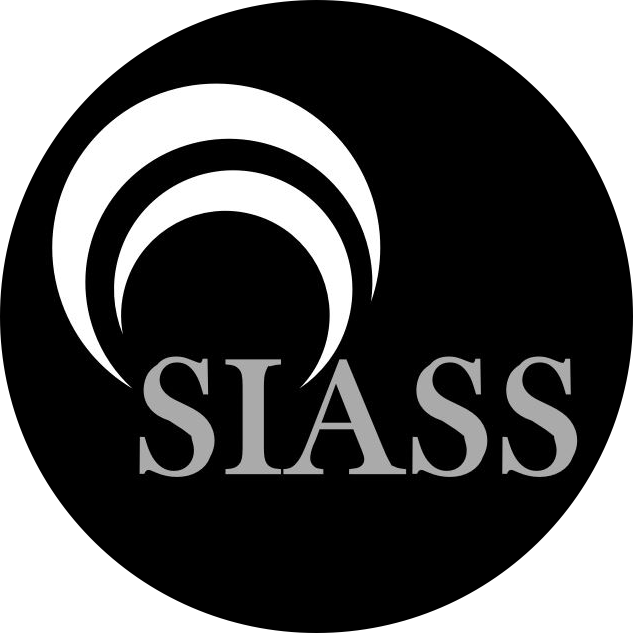How Surveillance Services Can Help Uncover Hidden Truths
- SIASS

- Aug 26, 2025
- 4 min read
Uncovering hidden truths can be a challenging task. Whether it’s for personal reasons, legal matters, or business concerns, surveillance services play a crucial role in revealing facts that might otherwise remain concealed. These services use advanced techniques and technology to gather information discreetly and effectively. This blog post explores how surveillance services can help uncover hidden truths, providing practical insights and examples to understand their value.
The Role of Surveillance Services in Investigations
Surveillance services are designed to monitor and collect information about individuals, locations, or activities without alerting the subjects. These services are often employed by private investigators, law enforcement, and corporate security teams to gather evidence or verify suspicions.
Key functions of surveillance services include:
Tracking movements and behaviours over time
Capturing photographic or video evidence
Monitoring communications and interactions
Identifying patterns or inconsistencies in behaviour
For example, a business suspecting employee theft might use surveillance to monitor staff activities discreetly. Similarly, a person concerned about infidelity could hire professionals to observe and document relevant behaviour.
Technical surveillance services combine human expertise with technology such as GPS trackers, hidden cameras, and audio devices to ensure comprehensive coverage. This blend allows investigators to uncover truths that are not easily accessible through conventional means.

Benefits of Using Professional Surveillance Services
Engaging professional surveillance services offers several advantages over attempting to gather information independently. Professionals bring experience, discretion, and legal knowledge to the process, ensuring that the investigation is both effective and compliant with laws.
Benefits include:
Expertise in covert operations: Professionals know how to avoid detection and gather evidence without compromising the investigation.
Access to advanced technology: Surveillance companies use state-of-the-art equipment that is often unavailable to the general public.
Legal compliance: Understanding privacy laws and regulations is critical to ensure that evidence collected is admissible in court.
Objective reporting: Surveillance professionals provide unbiased, factual reports that can be used in legal or personal decision-making.
For instance, a company facing internal fraud can rely on surveillance services to document suspicious activities legally and thoroughly. This evidence can then support disciplinary actions or legal proceedings.
Using private investigator surveillance services ensures that investigations are conducted professionally, increasing the chances of uncovering the truth while protecting the rights of all parties involved.
Practical Applications of Surveillance Services
Surveillance services are versatile and can be applied in various scenarios to uncover hidden truths. Here are some practical examples:
Infidelity investigations: Gathering evidence of unfaithful behaviour to support personal decisions or legal cases.
Employee monitoring: Detecting theft, misconduct, or breaches of company policy.
Child custody cases: Documenting parenting behaviour to assist courts in making informed decisions.
Insurance fraud detection: Verifying claims by observing the claimant’s activities.
Missing persons investigations: Tracking movements and contacts to locate individuals.
Each case requires a tailored approach, combining the right technology and expertise to achieve the best results. For example, in a child custody case, surveillance might focus on documenting the care and interaction between parent and child, providing objective evidence to the court.
By understanding the specific needs of each situation, surveillance services can be highly effective in revealing truths that are otherwise difficult to prove.
Ethical and Legal Considerations in Surveillance
While surveillance services are powerful tools, they must be used responsibly and within the boundaries of the law. Ethical and legal considerations are paramount to protect privacy rights and avoid legal repercussions.
Important points to consider:
Consent and legality: Some forms of surveillance require consent or must comply with strict legal guidelines.
Purpose limitation: Surveillance should be conducted only for legitimate reasons, such as protecting safety or gathering evidence.
Data protection: Information collected must be stored securely and used appropriately.
Avoiding harassment: Surveillance should not be used to intimidate or harass individuals.
Hiring professional surveillance services ensures adherence to these principles. Experts are trained to navigate complex legal frameworks and maintain ethical standards throughout the investigation.
Understanding these considerations helps clients make informed decisions and use surveillance services responsibly.
Enhancing Your Investigation with SIASS Technical Surveillance Services
To maximise the effectiveness of surveillance services, consider the following recommendations:
Define clear objectives: Know exactly what you want to uncover to guide the investigation.
Choose experienced professionals: Look for licensed and reputable surveillance providers.
Communicate openly: Share all relevant information with the investigators to help them plan effectively.
Stay patient: Surveillance can take time to gather conclusive evidence.
Review findings carefully: Analyse reports and footage thoroughly before making decisions.
By following these steps, you can ensure that surveillance services deliver valuable insights and help uncover hidden truths efficiently.
Surveillance services offer a powerful means to reveal facts that might otherwise remain hidden. Whether for personal, legal, or business reasons, these services combine expertise and technology to provide clear, objective evidence. Understanding how surveillance works, recognising signs of being watched, and knowing the ethical boundaries can help you make the most of these services.
When used responsibly, surveillance can be a vital tool in uncovering the truth and making informed decisions.




Comments